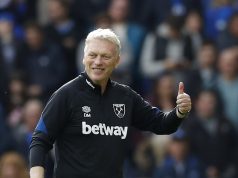Jack Collison’s recent loan move to Wigan Athletic has had many West Ham fans scratching their heads with confusion as they see yet another promising youngster leave the club for first team football.
It has been a regular occurrence ever since Harry Redknapp left the club as manager in 2001, with a host of the club’s homegrown talent being sold on or frozen out soon afterwards.
West Ham is a club famed for its ‘Academy of Football’ and the Claret and Blue trio of Bobby Moore, Geoff Hurst and Martin Peters practically won England the World Cup at Wembley in 1966. Moore was captain, while Hurst and Peters were the goal scorers in a 4-2 victory over West Germany.
But now, almost 50 years on, West Ham can only watch on as the player they nurtured and brought through the academy go on to win Premier League titles, Champions Leagues and countless domestic trophies with some of the biggest clubs in England.
The likes of Rio Ferdinand, Frank Lampard, Joe Cole, Michael Carrick, Jermain Defoe and Glen Johnson have all gone on to win major trophies and enjoy extensive international careers since leaving Upton Park. They were all spotted and trained by Tony Carr who, it could be argued, deserves a lot more credit for the work he has done for English football, let alone West Ham, than he already gets.
Even players like Sol Campbell, John Terry and Kieron Richardson passed through West Ham’s academy before beginning their professional careers elsewhere. That’s how much of an impact West Ham have had over the years.
The mass exodus, which would be a fair description of how the club came to see their own players enjoy success in other clubs’ colours, has brought upon about 15 years of uncertainty in East London.
Since Redknapp left, the club has been relegated from the Premier League twice, seen two takeovers and countless final day survival bids.
In the days when Rio Ferdinand was forcing his way into the Hammers’ first team and catching the attention of a cluster of big clubs, Redknapp said: “Why should we sell Rio Ferdinand? Are we a Premier League club or are we just a feeder club for bigger clubs? If we start selling players like Rio, where is the club going to go?”
Of course, the rest is history. Ferdinand was sold to Leeds United for £18million, which ultimately led to Redknapp’s departure from West Ham when Terry Brown was rumoured to have refused to give him a penny of the Ferdinand deal to bring in a credible replacement.
Lampard, Carrick, Defoe, Cole and Johnson soon followed suit, leaving The Academy of Football behind to suffer in their shadows.
Since then, it is only Mark Noble and James Tomkins who are first-team regulars at the club, although neither have gone on to achieve the same recognition or success of their Academy predecessors.
Both, it must be said, are fan favourites. Noble, in fact, is edging closer to his 300th appearance in Claret and Blue and is doing all the right things to ensure he remains a one club man and retires as a West Ham legend. Perhaps not in the same league as your Bobby Moores or Geoff Hursts, but a legend all the same.
The club has seen players like Anton Ferdinand, Freddie Sears, Junior Stanislas, Zavon Hines and Robert Hall show loads of promise, only to be sold or frozen out. The fans were fuming at the time of their departures, but not a single one of those players is playing Premier League football at present.
But West Ham’s youth academy legacy remains just that. A legacy. They have not developed and provided an England international for around 10 years now, and the current crop of youngsters are not yet showing signs of breaking that barren spell.
But how do you emulate a crop of youngsters that includes players as talented as Lampard, Ferdinand and Cole on a regular basis? It’s almost impossible to continue such a level of achievement, and that perhaps makes West Ham’s youth academy a victim of its own success.
A long period of brilliance and accomplishments has been followed by a spell of disappointment and let-downs, while the expectation of the club’s supporters remains the same.
Whenever a youth academy product makes his first team debut and does well, he is already billed as the next best thing. A 16-year-old Freddie Sears came on as a late substitute in a Premier League game against Blackburn and scored the winner in a 2-1 victory. A handful of substitute appearances later and he was released.
That is now the way in which West Ham’s academy is going. Give youngsters their first team debuts and then either release them or sell them for a small fee. Allardyce told the fans before Christmas that he didn’t believe the current crop of youth players at the club are good enough for the first team.
But the fans continue to hear of Elliot Lee’s goal-scoring exploits for the club’s Development Squad and the impressive performances consistently put in by the likes of George Moncur, Leo Chambers and Paul McCallum.
West Ham’s time as England’s feeder club looks well and truly over. Not until, perhaps, a manager is prepared to give the youngsters a chance to nurture themselves in the first-team and develop – something which cannot be said of Big Sam.








